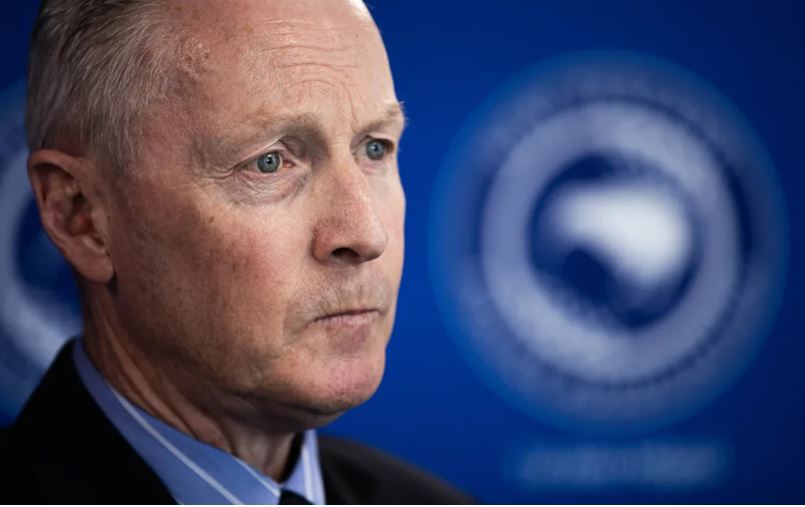Police officers are vehemently expressing their discontent with what they perceive as an “insulting,” “disgusting,” and “demoralizing” pay offer amid the backdrop of a cost-of-living crisis and challenging working conditions. The officers had initially rejected the government’s offer in September 2023, only to be presented with the same proposal again on Friday. Police Minister Mark Mitchell defends the government’s stance, citing tough economic times as the driving force behind the negotiations.
President of the New Zealand Police Association Te Aka Hāpai, Chris Cahill, addressed the media in Wellington, sharing the officers’ resounding rejection of the offer. The sentiments expressed ranged from feeling “kicked in the guts” to finding the proposal “farcical,” “disrespectful,” and “an absolute joke.” This comes after months of waiting and eight months beyond the expiration of their current collective agreement.
Cahill underscored the potential ramifications of such an offer on the police force, noting that about 5 percent of the workforce is typically lost to resignations each year. Anticipating a spike in departures in the coming months, he pointed out that attracting replacements would be challenging if conditions and pay remain unappealing.
Financial pressures are mounting on many officers, leading to difficulties in meeting rent or mortgage obligations and, in some cases, necessitating the reliance on food parcels. The allure of Australia is growing among officers facing these challenges. Despite the government’s commitment to being “tough on crime,” Cahill criticized the intentional failure to backdate the pay offer, delayed due to political and governmental processes rather than any fault of the officers.
The government’s stance on being “tough on crime” also means more demanding work for officers, adding to their frustrations. Cahill highlighted the irony of insulting officers by not backdating the delayed pay offer, considering the increased workload and challenges they face in their roles.
However, officers are legally restricted from taking industrial action, further complicating their ability to express their discontent. Cahill emphasized that officers can’t adopt strategies such as slowing down work, avoiding issuing tickets, or refraining from overtime. Despite these limitations, he noted a growing desire among officers to take to the streets, expressing a level of anger and frustration unprecedented in his experience.
The proposed pay increase includes $5000 from November 1, 2023, with allowances increasing by 5.25 percent (not backdated to July 1). Subsequent increases of 4 percent from September 1, 2024, and another 4 percent from July 1, 2025, are part of the proposal. However, these increases are delayed, and allowances are not effective from July 1, 2024. Additionally, the offer suggests a pilot to test mechanisms for transitioning to pay overtime by June 30, 2026, or earlier, along with changes to meal and incidental allowances and a reduction in accumulated leave from 45 to 35 days.
Cahill underscored that the last pay rise occurred two years ago at 3.5 percent, falling short of the 7.2 percent inflation rate that year. The current offer lacks backdating, does not provide benefits for health checks, replaces allowances with reimbursed expenses, and extends the term to three years instead of two, introducing uncertainty in an already challenging environment.
Cahill expressed suspicions that the offer originated from Treasury and public service officials who may not fully grasp the pressures faced by police officers. While acknowledging tough economic times, he emphasized that police officers should not be expected to fund the police budget. In light of the government’s recent decision to provide $3 billion in tax relief to landlords over the next three years, Cahill argued that it’s time for the government to prioritize the well-being of police officers, who earn significantly less than professionals in other fields with similar experience.-TIN Bureau
 Association president Chris Cahill said officers had lambasted the offer as "a kick in the guts", Photo: RNZ / Angus Dreaver
Association president Chris Cahill said officers had lambasted the offer as "a kick in the guts", Photo: RNZ / Angus Dreaver 
